Table of Contents
Navigating relationships with ADHD can be challenging due to the condition’s impact on attention, impulsivity, and hyperactivity. Attention Deficit Hyperactivity Disorder (ADHD) affects both children and adults, but for women, especially Filipino women with ADHD, the condition can pose unique challenges in various aspects of life, including relationships. Understanding and addressing these challenges is crucial for maintaining healthy and fulfilling relationships.
This blog will explore the common relationship issues faced by women with ADHD and offer practical advice on navigating these challenges effectively.
Understanding the Impact of ADHD on Relationships
ADHD can profoundly affect various aspects of relationships, often creating unique challenges that require careful navigation. For women with ADHD, understanding these impacts is the first step towards fostering healthier and more fulfilling connections.
This section delves into the common relationship challenges faced by women with ADHD, including difficulties with communication, time management issues, and the effects on intimacy and connection with partners.
Common Relationship Challenges

Difficulty with communication and emotional regulation
Communication is a cornerstone of any healthy relationship, but for women navigating relationships with ADHD, it can be particularly challenging. ADHD can impair one’s ability to listen attentively, follow conversations, and respond appropriately.
Emotional dysregulation, a common symptom of ADHD, can lead to heightened emotional responses, making it difficult to manage conflicts calmly. Filipino women with ADHD might find it especially challenging to express their feelings and needs effectively, leading to misunderstandings and frustration in their relationships.
Issues with time management and forgetfulness
Time management and memory are often problematic areas for individuals with ADHD. Women with ADHD may frequently forget important dates, appointments, or even simple daily tasks, which can be perceived as carelessness or lack of commitment by their partners.
This forgetfulness can strain relationships, causing partners to feel neglected or undervalued. Moreover, the constant struggle to manage time effectively can lead to chronic lateness or an inability to follow through on plans, further impacting relationship dynamics.
Impact on intimacy and connection with partners
ADHD can also affect the intimate aspects of a relationship. The impulsivity and distractibility associated with ADHD can make it challenging to maintain deep emotional and physical connections with partners. Women navigating relationships with ADHD might find it difficult to stay present during intimate moments, or to initiate and maintain physical intimacy. This can lead to feelings of disconnection and dissatisfaction for both partners.
For Filipino women with ADHD, cultural expectations around relationship roles and intimacy can add another layer of complexity, making it even more important to address these challenges openly and sensitively.
Practical Strategies for Managing ADHD in Relationships
- Improve Communication: Open and honest communication is vital. Women with ADHD should strive to express their needs clearly and listen actively to their partners. Techniques like active listening, repeating back what the partner has said, and using “I” statements can help improve understanding and reduce conflicts.
- Set Reminders and Alarms: Utilizing digital tools such as calendars, reminder apps, or even sticky notes can help manage forgetfulness. This can demonstrate to partners a proactive approach to managing ADHD symptoms and respecting shared commitments.
- Practice Mindfulness and Relaxation Techniques: Incorporating mindfulness practices can aid in emotional regulation. Techniques such as deep breathing, meditation, or yoga can help manage impulsivity and improve emotional responses during conflicts.
- Seek Professional Support: Counseling or therapy, either individually or as a couple, can provide valuable strategies for managing ADHD symptoms in the context of relationships. Professional guidance can help both partners understand ADHD better and develop effective coping mechanisms.
- Prioritize Intimacy: Scheduling regular date nights or intimate moments can help maintain a strong connection with partners. Being intentional about spending quality time together can foster deeper emotional and physical bonds.
Navigating relationships with ADHD requires understanding, patience, and proactive strategies. By addressing common challenges such as communication difficulties, time management issues, and impacts on intimacy, women with ADHD can build stronger, more fulfilling relationships. Embracing these strategies can lead to a more balanced and harmonious partnership, allowing both individuals to thrive.
Effective Communication Strategies

Effective communication is essential for navigating relationships with ADHD. Open, honest, and clear communication helps build understanding and trust, which are crucial for maintaining healthy relationships. In this section, we’ll explore strategies for discussing ADHD with loved ones, improving listening skills, and expressing feelings clearly.
Discussing ADHD with Loved Ones
Navigating relationships with ADHD begins with helping your loved ones understand the condition. Start by explaining what ADHD is, including its symptoms and how it specifically affects you. Use simple, relatable terms to describe your experiences, emphasizing that ADHD is a neurological condition that impacts attention, impulse control, and emotional regulation.
How to explain ADHD to partners, family, and friends
- Educate: Share reliable resources, such as articles or videos, to help them learn more about ADHD. Consider discussing books like “Driven to Distraction” by Dr. Edward Hallowell and Dr. John Ratey, which provide an in-depth look at ADHD.
- Personalize: Explain how ADHD manifests in your daily life. For example, mention specific challenges you face, such as forgetfulness, impulsivity, or difficulty staying organized.
- Answer Questions: Encourage your loved ones to ask questions and express their concerns. This can foster a more supportive and understanding environment.
Importance of being open and honest about your needs
Honesty is key in navigating relationships with ADHD. Being transparent about your needs helps your loved ones understand how they can support you.
Discuss your coping strategies and what you need from them, such as reminders for important dates or patience during moments of emotional dysregulation. Clear communication about your needs reduces misunderstandings and promotes a collaborative approach to managing ADHD.
Active Listening Techniques

Tips for improving listening skills
Active listening is a powerful tool for enhancing mutual understanding in relationships. Here are some tips to improve your listening skills:
- Maintain Eye Contact: This shows your partner that you are engaged and focused on what they are saying.
- Avoid Interruptions: Let your partner finish their thoughts before responding. This demonstrates respect and allows you to fully understand their perspective.
- Reflect and Paraphrase: Repeat back what your partner has said in your own words to confirm understanding and show that you are listening.
How active listening can enhance mutual understanding
Active listening fosters a deeper connection and mutual understanding in relationships. When both partners feel heard and validated, it builds trust and empathy.
For Filipino women with ADHD, practicing active listening can help mitigate misunderstandings caused by impulsivity or inattentiveness. By genuinely engaging in conversations, you demonstrate your commitment to the relationship and your partner’s feelings.
Expressing Feelings Clearly

Using “I” statements to communicate emotions
“I” statements are a constructive way to express your feelings without blaming or criticizing your partner. This method focuses on your emotions and needs rather than your partner’s actions, reducing defensiveness and promoting open dialogue.
- Structure of “I” Statements: Begin with “I feel” followed by your emotion, then “when” and describe the specific situation, and end with “because” to explain the impact. For example, “I feel frustrated when plans change at the last minute because it disrupts my schedule.”
- Be Specific: Clearly articulate what you need from your partner to address the issue. For instance, “I need more notice when plans change, so I can adjust my schedule accordingly.”
Avoiding blame and focusing on solutions
Avoiding blame is crucial for productive communication. Focus on finding solutions together rather than assigning fault. This approach fosters a cooperative spirit and encourages both partners to work towards resolving issues.
- Problem-Solving Together: Discuss potential solutions and agree on actions you both can take to improve the situation. For example, setting reminders for important dates or creating a shared calendar can help manage time better.
- Stay Positive and Supportive: Acknowledge each other’s efforts and celebrate small victories. Positive reinforcement strengthens the relationship and motivates continued collaboration.
Women navigating relationships with ADHD can enhance their connections, reduce misunderstandings, and build stronger, more supportive relationships. Open dialogue, active listening, and clear expression of feelings are fundamental to maintaining healthy and fulfilling relationships.
Setting Boundaries
Establishing boundaries is a crucial part of navigating relationships with ADHD. Clear and healthy boundaries help maintain balance, reduce stress, and ensure that both partners’ needs are met. This section will explore the importance of setting boundaries, provide practical tips for implementing them, and offer examples of healthy boundaries that can enhance relationships for women with ADHD.
Why Boundaries Matter

Boundaries are essential for any relationship, but they are particularly important when navigating relationships with ADHD. Clear boundaries help define expectations and responsibilities, reducing the likelihood of misunderstandings and conflicts. They provide a framework that helps both partners understand each other’s needs and limits, fostering mutual respect and support.
How boundaries help manage ADHD symptoms in relationships
For Filipino women with ADHD, setting boundaries can significantly aid in managing symptoms such as impulsivity, emotional dysregulation, and time management issues.
Boundaries create a structured environment that can mitigate the chaos often associated with ADHD. They help in maintaining focus, reducing distractions, and ensuring that both partners feel valued and understood. By clearly delineating personal space and time, boundaries also help in managing stress and preventing burnout.
Practical Tips for Setting Boundaries

Identifying and communicating your limits
- Self-Reflection: Take time to reflect on your needs and identify areas where you need boundaries. Consider aspects such as time, emotional energy, and personal space.
- Clear Communication: Once you have identified your limits, communicate them clearly and assertively to your partner. Use “I” statements to express your needs without sounding accusatory. For example, “I need some quiet time in the evening to unwind after work.”
Consistently enforcing boundaries with loved ones
- Consistency is Key: Consistently enforce your boundaries to ensure they are respected. If a boundary is crossed, address it promptly and remind your partner of the agreed limits.
- Positive Reinforcement: Acknowledge and appreciate when your partner respects your boundaries. Positive reinforcement encourages continued adherence to the established limits.
- Flexibility and Negotiation: While consistency is important, be open to discussing and renegotiating boundaries as needed. Relationships are dynamic, and adjustments may be necessary over time.
Examples of Healthy Boundaries

Time management: Allocating time for yourself and for others
- Scheduled Personal Time: Set aside specific times for self-care and personal activities. This could include hobbies, exercise, or simply relaxing. Communicate these times to your partner and ensure they understand the importance of this personal space.
- Shared Activities: Allocate time for shared activities with your partner. Having planned time together helps in maintaining connection and intimacy while respecting each other’s personal time.
Emotional boundaries: Recognizing and respecting personal emotional limits
- Expressing Emotional Needs: Clearly communicate your emotional needs and limits. For example, let your partner know if you need time alone to process emotions or if certain topics are too sensitive to discuss immediately.
- Managing Emotional Energy: Recognize when you are emotionally drained and need to recharge. Inform your partner if you need a break from social interactions or intense conversations to maintain your emotional well-being.
- Respecting Each Other’s Space: Understand and respect your partner’s emotional boundaries as well. Ensure that both partners feel safe and supported in expressing their feelings without fear of judgment or intrusion.
Seeking Support
Seeking support is a vital component of navigating relationships with ADHD. Professional help and community support can provide valuable insights, practical strategies, and emotional encouragement.
This section will discuss the benefits of therapy and counseling, how to find the right therapist, and the importance of support groups and online communities for women with ADHD.
Professional Help

Benefits of therapy and counseling for managing ADHD in relationships
Therapy and counseling can be incredibly beneficial for women navigating relationships with ADHD. Professional guidance helps in understanding the intricacies of ADHD and its impact on relationships. Therapists can provide strategies for managing symptoms, improving communication, and fostering emotional regulation. Counseling can also assist in resolving conflicts and building stronger, more resilient relationships.
- Understanding ADHD: A therapist can educate both partners about ADHD, helping them understand its effects on behavior and relationships. This knowledge fosters empathy and reduces frustration.
- Developing Coping Strategies: Therapists can offer personalized strategies for managing ADHD symptoms, such as time management techniques, stress reduction practices, and communication skills.
- Improving Communication: Counseling sessions can teach effective communication techniques, helping couples express their needs and feelings more clearly and constructively.
- Emotional Support: Therapy provides a safe space to explore and address emotional challenges, reducing the emotional burden on the relationship.
Finding a therapist who specializes in ADHD
- Research and Referrals: Start by researching therapists who specialize in ADHD. Referrals from primary care doctors, friends, or ADHD support groups can be valuable.
- Professional Directories: Utilize professional directories like Psychology Today or the ADHD Society of the Philippines, which list specialists in ADHD.
- Consultations: Schedule initial consultations with potential therapists to discuss their experience with ADHD and their approach to treatment. Ensure they have experience working with adults and couples if relationship counseling is needed.
Support Groups and Online Communities
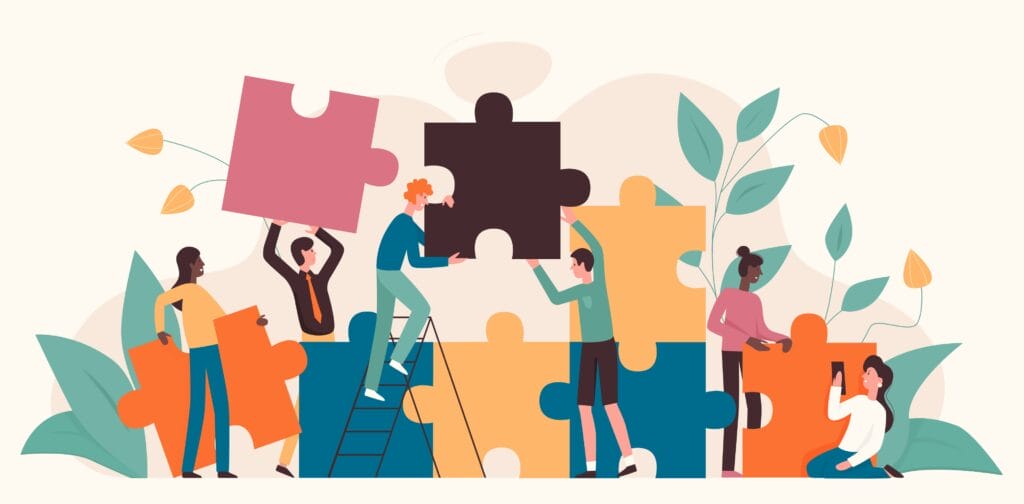
How joining support groups can provide understanding and advice
Support groups offer a sense of community and understanding that is invaluable for women navigating relationships with ADHD. These groups provide a platform to share experiences, exchange advice, and receive encouragement from others facing similar challenges.
- Shared Experiences: Hearing from others who understand the unique challenges of ADHD can be comforting and validating.
- Practical Advice: Members often share strategies that have worked for them, providing practical tips that can be applied in your own life.
- Emotional Support: Support groups offer a safe space to express frustrations and triumphs, reducing feelings of isolation and boosting morale.
List of online communities and local support groups for women with ADHD
- ADHD Society of the Philippines: This organization offers local support groups and resources specifically for individuals with ADHD. They also host workshops and seminars that can provide additional support.
- Facebook Groups: Online communities like “ADHD Moms Philippines” and “ADHD Women PH” offer a platform for Filipino women with ADHD to connect, share experiences, and support each other.
- Reddit: Subreddits such as r/ADHD and r/adhdwomen provide a global community where members can discuss their experiences and seek advice.
- ADDA (Attention Deficit Disorder Association): ADDA offers virtual support groups for adults with ADHD, providing a flexible and accessible way to connect with others.
- Local Community Centers: Many local community centers and mental health organizations offer support groups for ADHD. Check with local health services for available groups.
By seeking professional help and engaging with support groups and online communities, women navigating relationships with ADHD can find the guidance, understanding, and encouragement they need. These resources provide valuable tools for managing ADHD symptoms, improving relationships, and fostering a supportive network.
Maintaining Healthy Relationships

Maintaining healthy relationships is essential for navigating relationships with ADHD. Whether with partners, family, or friends, strong connections provide emotional support and stability.
This section offers practical advice on improving intimacy, managing conflicts, fostering supportive family dynamics, and maintaining friendships despite ADHD challenges.
With Partners

Tips for improving intimacy and connection
- Prioritize Quality Time: Schedule regular date nights or quiet moments together to strengthen your bond. This dedicated time helps maintain a strong emotional connection.
- Practice Mindfulness: Engage in mindfulness exercises together to stay present and connected during intimate moments. This can help reduce distractions and enhance your emotional connection.
- Open Communication: Regularly discuss your feelings and needs with your partner. Being open about your ADHD symptoms and how they affect your relationship can foster understanding and empathy.
Strategies for managing conflicts and misunderstandings
- Stay Calm and Focused: During conflicts, take a few deep breaths and focus on staying calm. This helps in managing emotional dysregulation and prevents escalation.
- Use “I” Statements: Communicate your feelings without blaming your partner. For example, say, “I feel overwhelmed when plans change suddenly,” instead of, “You always change plans.”
- Seek Compromise: Work together to find solutions that address both partners’ needs. Compromise is key to resolving conflicts and maintaining a healthy relationship.
- Professional Help: Consider couples therapy with a therapist who specializes in ADHD to help navigate complex relationship dynamics and develop effective conflict resolution strategies.
With Family

How to foster supportive family relationships
- Educate Family Members: Help your family understand ADHD by sharing information and resources. This knowledge can reduce misunderstandings and increase support.
- Involve Family in Your Journey: Encourage family members to attend ADHD workshops or therapy sessions with you. Their involvement can foster a deeper understanding and stronger support network.
- Set Clear Boundaries: Communicate your limits and needs to family members. Clear boundaries help prevent overstepping and ensure mutual respect.
Involving family members in ADHD management strategies
- Create a Family Schedule: Develop a family schedule that includes everyone’s responsibilities. This helps in managing time effectively and reduces chaos.
- Assign Roles: Delegate specific tasks to family members to share the load. This collaborative approach can reduce stress and promote teamwork.
- Regular Check-Ins: Schedule regular family meetings to discuss progress, challenges, and adjustments needed in your ADHD management strategies.
With Friends

Maintaining friendships despite ADHD challenges
- Stay Organized: Use tools like calendars and reminder apps to keep track of social engagements and important dates. This helps in staying reliable and maintaining friendships.
- Be Honest: Share your ADHD diagnosis with close friends and explain how it affects your behavior. Transparency can lead to greater understanding and patience from your friends.
- Initiate Contact: Don’t wait for friends to reach out. Take the initiative to plan outings or catch-up sessions to keep the friendship active.
Communicating your needs and seeking understanding from friends
- Explain Your Needs: Let your friends know what kind of support you need. For instance, if you struggle with memory, ask them to send reminders for plans.
- Set Realistic Expectations: Be honest about your limitations and set realistic expectations for your availability and participation in social activities.
- Appreciate Their Support: Show gratitude for your friends’ understanding and support. This strengthens your bond and encourages continued support.
Maintaining healthy relationships is crucial for managing adult ADHD symptoms and navigating relationships with ADHD. By improving communication, setting clear boundaries, and seeking support from partners, family, and friends, women with ADHD can foster stronger, more fulfilling connections. Embracing these strategies can lead to a more balanced and supportive social network, enhancing overall well-being.
Conclusion
Navigating relationships with ADHD requires a multifaceted approach that includes effective communication, setting clear boundaries, and seeking both professional and communal support. Communication is the foundation of any healthy relationship, and being open about your ADHD symptoms and needs can foster understanding and empathy.
Setting boundaries helps manage ADHD symptoms and ensures mutual respect, while seeking support from therapists, support groups, and online communities provides invaluable resources and emotional backing. By applying these strategies, women with ADHD can cultivate healthier, more fulfilling relationships that support their well-being and personal growth.
FAQs
Navigating relationships with ADHD can raise many questions. Here are some frequently asked questions and their answers to help guide you.
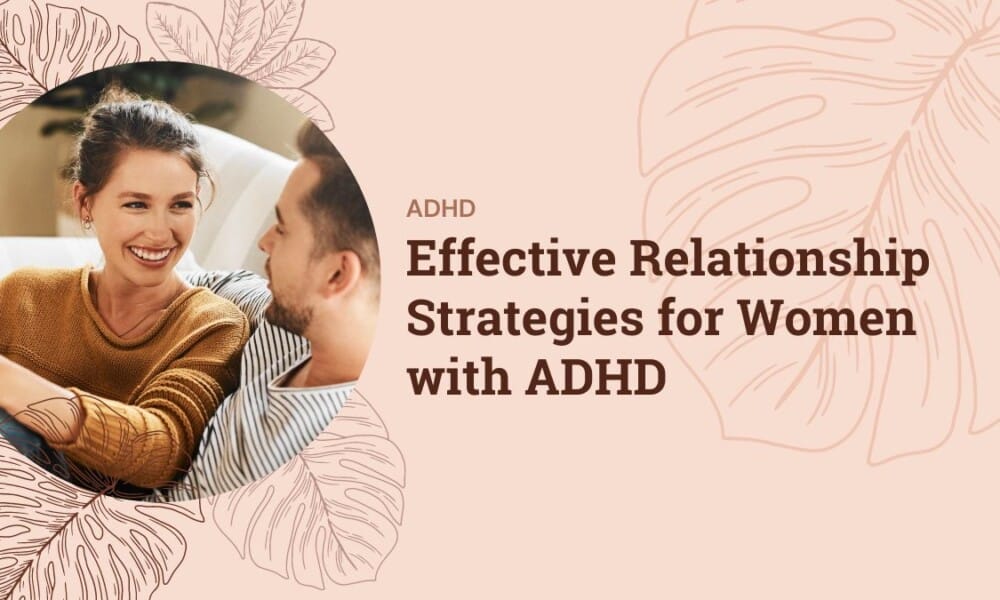


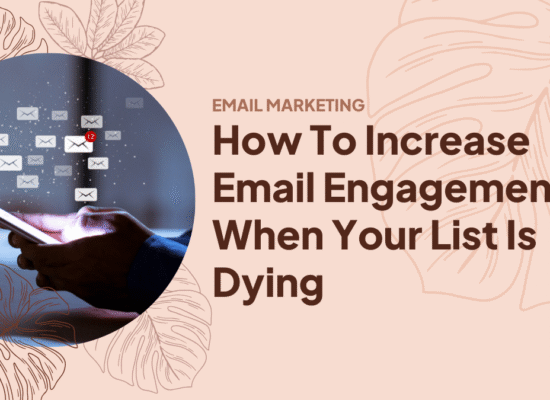
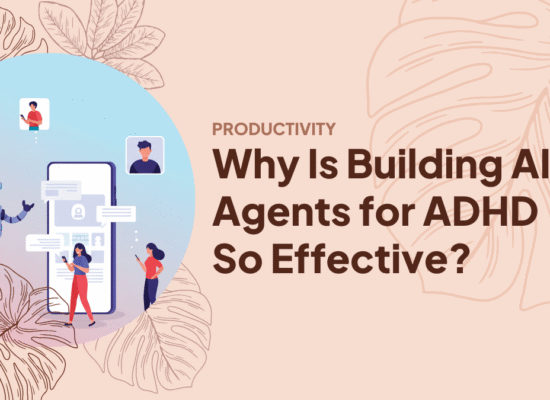
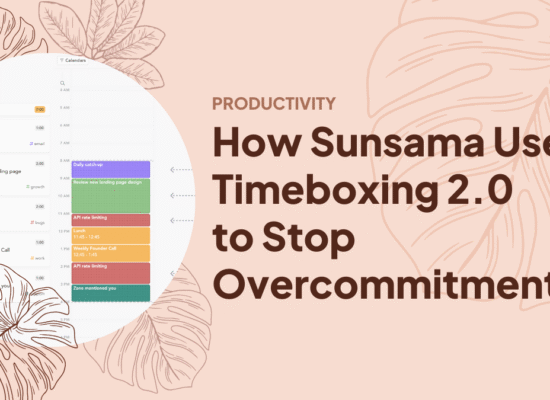
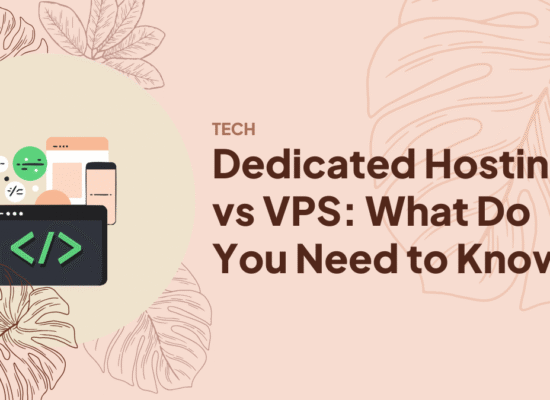
No Comment! Be the first one.